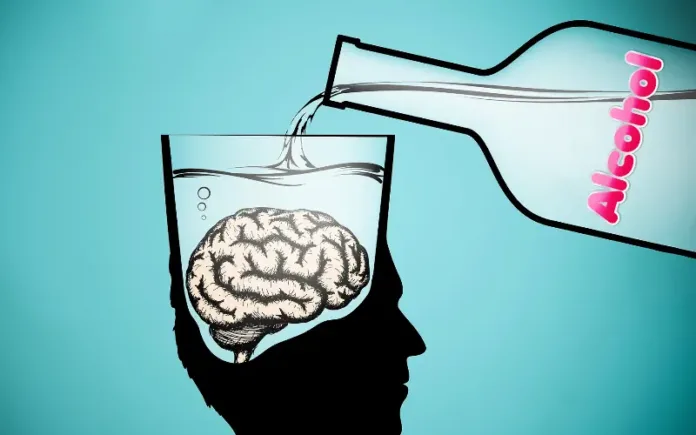Alcohol use disorder (AUD) has profound effects on the brain, leading to significant damage over time. Chronic alcohol consumption alters brain structure and function, impacting cognitive abilities, emotional regulation, and overall mental health. Understanding the damage caused by AUD is crucial for developing successful alcohol use disorder treatment and supporting long-term recovery.
The Impact of Alcohol on Brain Structure
Chronic alcohol use causes structural changes in the brain, affecting various regions responsible for critical functions:
- The hippocampus, essential for memory formation, is highly vulnerable to alcohol-induced damage. Chronic drinking can lead to hippocampal atrophy, resulting in memory impairments and difficulties with learning new information.
- The prefrontal cortex, involved in decision-making, impulse control, and emotional regulation, is also significantly affected by alcohol. Damage to this area can result in poor judgment, increased impulsivity, and difficulty managing emotions.
- The cerebellum, responsible for motor control and coordination, can suffer damage due to prolonged alcohol use. This can lead to difficulties with balance, coordination, and fine motor skills.
Neurotransmitter Imbalances
Alcohol disrupts the balance of neurotransmitters, the chemicals that transmit signals in the brain, leading to various cognitive and behavioral issues:
- Alcohol enhances the effects of gamma-aminobutyric acid (GABA), an inhibitory neurotransmitter, while inhibiting glutamate, an excitatory neurotransmitter. This imbalance leads to the sedative and depressant effects of alcohol, contributing to cognitive slowing and impaired brain function.
- Alcohol increases dopamine levels in the brain’s reward pathway, leading to the pleasurable effects associated with drinking. Over time, this can result in a reduced ability to experience pleasure from other activities, reinforcing the cycle of addiction.
Cognitive and Behavioral Effects
The cognitive and behavioral effects of AUD are extensive, impacting daily functioning and overall quality of life:
- As mentioned, damage to the hippocampus leads to significant memory impairments, including difficulty forming new memories and recalling past events.
- Damage to the prefrontal cortex results in executive dysfunction, characterized by poor planning, decision-making, and impulse control. This can lead to risky behaviors and difficulty adhering to treatment plans.
- Alcohol’s impact on the brain’s emotional centers can result in mood swings, increased anxiety, and depression. Individuals with AUD often struggle to manage their emotions effectively.
Wernicke-Korsakoff Syndrome
The acute phase of WKS, Wernicke’s encephalopathy, is characterized by confusion, lack of coordination, and abnormal eye movements. If untreated, it can progress to the more severe Korsakoff’s psychosis.
This chronic phase involves severe memory deficits, including anterograde amnesia (inability to form new memories) and confabulation (creating false memories). It can result in permanent cognitive impairment if not addressed promptly.
Reversibility of Brain Damage
While some of the brain damage caused by AUD is permanent, research indicates that certain areas can recover with sustained sobriety and appropriate treatment:
- The brain’s ability to reorganize and form new neural connections, known as neuroplasticity, can facilitate recovery. Engaging in cognitive rehabilitation and mentally stimulating activities can promote neuroplastic changes.
- Structured cognitive rehabilitation programs can help individuals regain cognitive functions affected by AUD. These programs focus on improving memory, executive functions, and problem-solving skills.
- Addressing nutritional deficiencies, particularly thiamine, is crucial for preventing and treating conditions like Wernicke-Korsakoff Syndrome. A balanced diet and supplementation can support overall brain health.
Strategies for Supporting Brain Health During Recovery
Supporting brain health is a vital component of comprehensive alcohol use disorder treatment. Several strategies can aid in the recovery process:
- Adopting a healthy lifestyle that includes regular physical exercise, adequate sleep, and a balanced diet can promote brain health and improve cognitive function.
- Practices such as mindfulness and meditation can enhance emotional regulation, reduce stress, and support cognitive recovery.
- Ongoing therapy and counseling provide emotional support and address underlying issues contributing to AUD. Cognitive-behavioral therapy (CBT) is particularly effective in improving cognitive and emotional health.
- Staying socially active and maintaining relationships can provide mental stimulation and emotional support, which are beneficial for brain health.
Alcohol use disorder causes significant damage to the brain, affecting its structure, function, and overall health.
